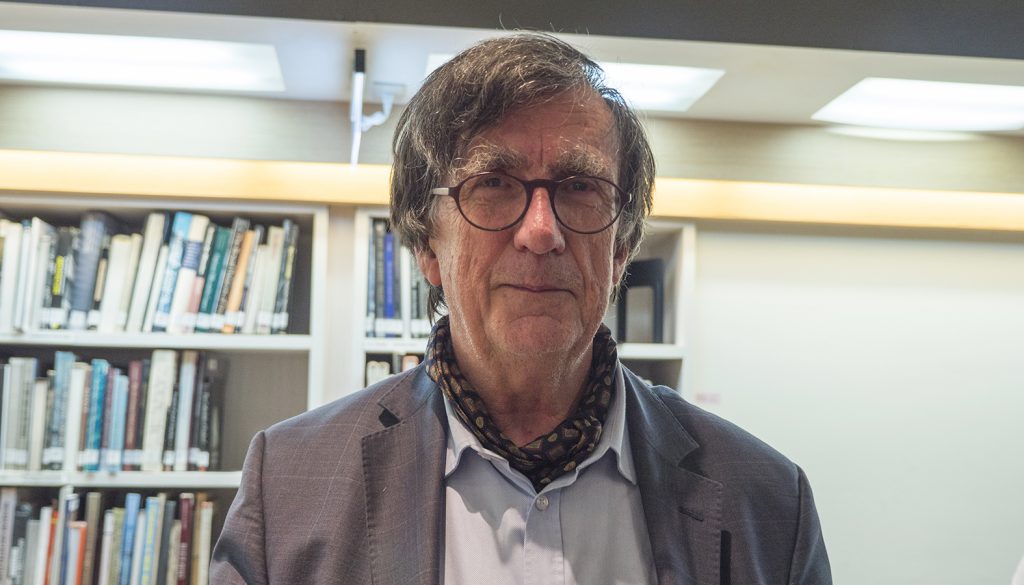When the most important Catholic philosopher in the world dies and nobody takes notice, it is time for some honest reflection.
Bruno Latour passed away at the age of 75 on Oct. 9 in Paris following a battle with lung cancer. You may not recognize his name, what he did, or why he did it, and perhaps that is because Latour was not a popularizer of religious ideas, nor an inspirational preacher, proselytizer, polemicist or simplifier of complex arguments. He didn’t have a podcast, television network, or tell cute stories about growing up Catholic in Cleveland in the 1940s.
He was a serious, original, and especially difficult thinker.
Before becoming a philosopher, Latour volunteered for the French version of the Peace Corps. Among the things he was asked to do was to make ethnological studies of African communities, noting their social hierarchies, their habits, their customs, and their values.
He decided he would rather analyze the French colonists instead, charting their tribal values and hierarchies. He wanted to know who he had become, and why and how he had become it. What does it mean, he asked, to be a “modern” man or woman as opposed to an ordinary, everyday simple human being living in Africa with family and friends?
He discovered that moderns divide the world into two great cosmic entities: the great vast subjective freedom within and everything else without — objects and people — everything that can be manipulated and controlled.
When he returned to France, he began his philosophical studies. He was a brilliant student but hated the elitism, status seeking, and snobbery he found in the prestigious French Academy. He spent the bulk of his career at the College of Mines just outside of Paris, an elite school but not a very famous one.
Occasionally, there were opportunities to move to more prestigious universities with less work and more pay, but they were torpedoed by various political and academic cliques who mistrusted his working-class origins, his interest in technology, and, possibly, even his Catholicism.
 Eventually, he wrote a book on the subject that had intrigued him while living in Africa, “Why We Have Never Been Modern.” He argued that the modern world was under a historical delusion that it was possible to separate facts from values and ideas from the history and people that produced them. We have never been modern, he argued, because such modern dualisms have simply never existed in reality itself.
Eventually, he wrote a book on the subject that had intrigued him while living in Africa, “Why We Have Never Been Modern.” He argued that the modern world was under a historical delusion that it was possible to separate facts from values and ideas from the history and people that produced them. We have never been modern, he argued, because such modern dualisms have simply never existed in reality itself.
Latour concluded that since everybody in the modern world adhered to science as the way to truth, he’d study what scientists do and why they do it. Today you can look up the answer to that question on the internet, but Latour lived in simpler times and was a serious person, so he wasn’t interested in the usual cover stories. He wanted to find out for himself, so he visited laboratories, talked to scientists and philosophers, studied their disciplines and practices, read books, sought out criticism, and thought and thought again. The process led him to reconsider everything he thought he already knew.
What he finally found out was that facts are not the things they seem to be. In fact, there are no facts — and at least no facts that exist independently from theories, and no theories without scientific communities organized around a collective search for truth and policed by hierarchies of experts.
As a result, he figured the only way to learn what scientists do is to make a map of what everybody involved in the scientific enterprise does. This approach became what Latour later called the Agent Network Theory (ANT), a new experimental alternative metaphysics where everything in the social and natural worlds exists in constantly shifting networks of relationships.
Behind this project was Latour’s more inclusive attempt to sort out the relationship of scientific knowledge to every other modern way of knowing — including religion in general and his own Catholic Christian faith in particular.
In 2016, Professor Barbara Herrnstein Smith described Latour’s project this way:
“A central motivating force in Bruno Latour’s work for at least the past two decades — and perhaps from the beginning — has been his hope to frame a generally acceptable, intellectually sophisticated, and theologically proper account of religion, specifically of Christianity. In his pursuit of these ends, Latour has tied together a constructivist-pragmatist account of scientific knowledge with a rhetorically deft Christian apologetics to produce a singular — bold, inventive, and in many ways compelling but also equivocal — anthropotheology.”
There is no need to go into the particulars here; to unpack the implications would take a lifetime. But his quest left no doubt that Latour was a serious thinker who subjected his intellect to the light of faith. He was born into a world suffering not only from death, drought, disease, but from the pain of never knowing their own true selves. Latour understood that our world was one bewildered by the delusions of infinite distraction and insatiable artificial desires.

